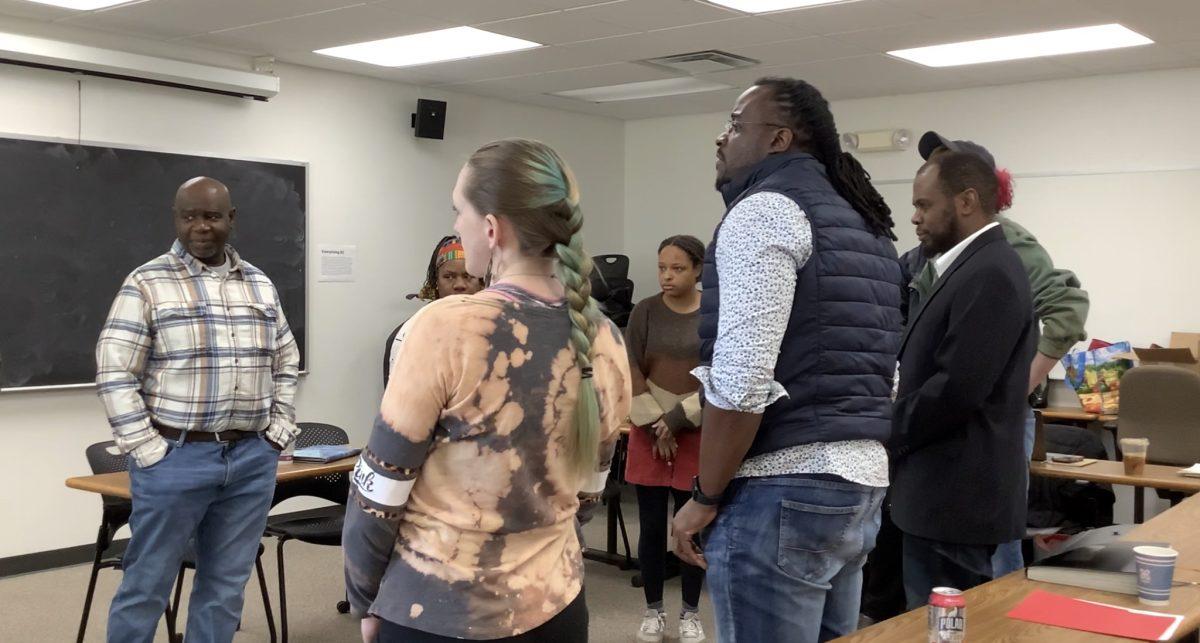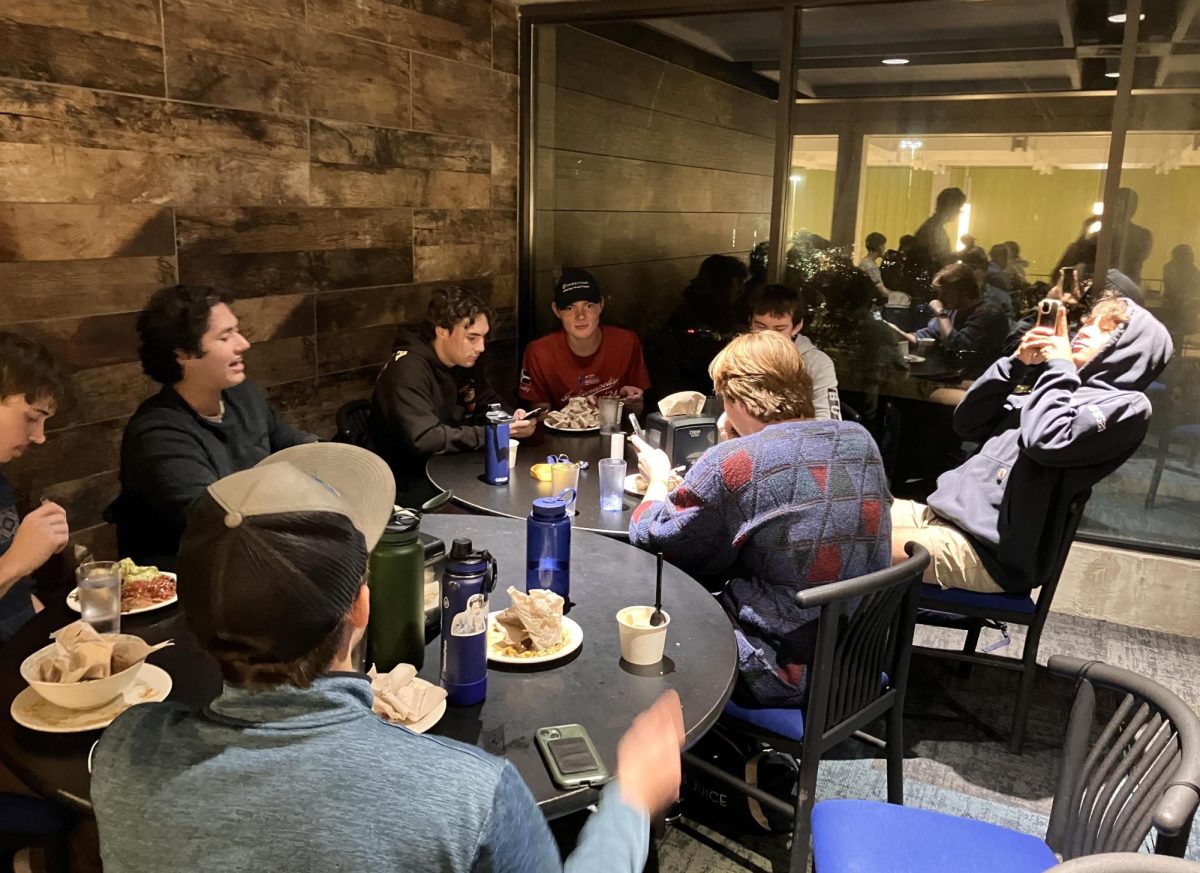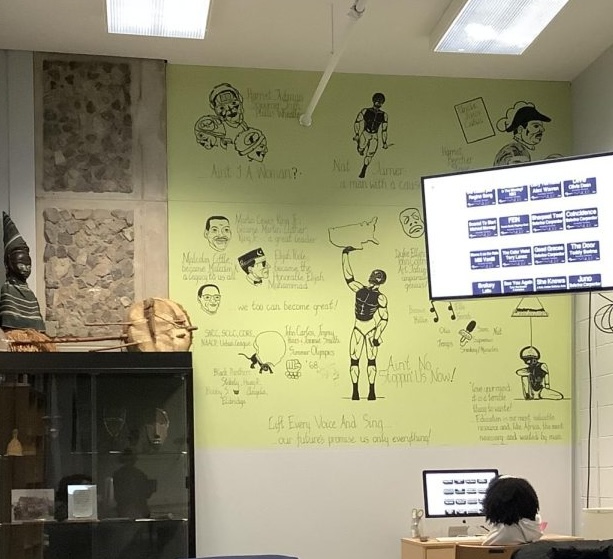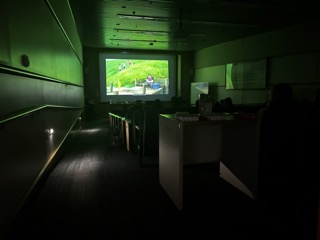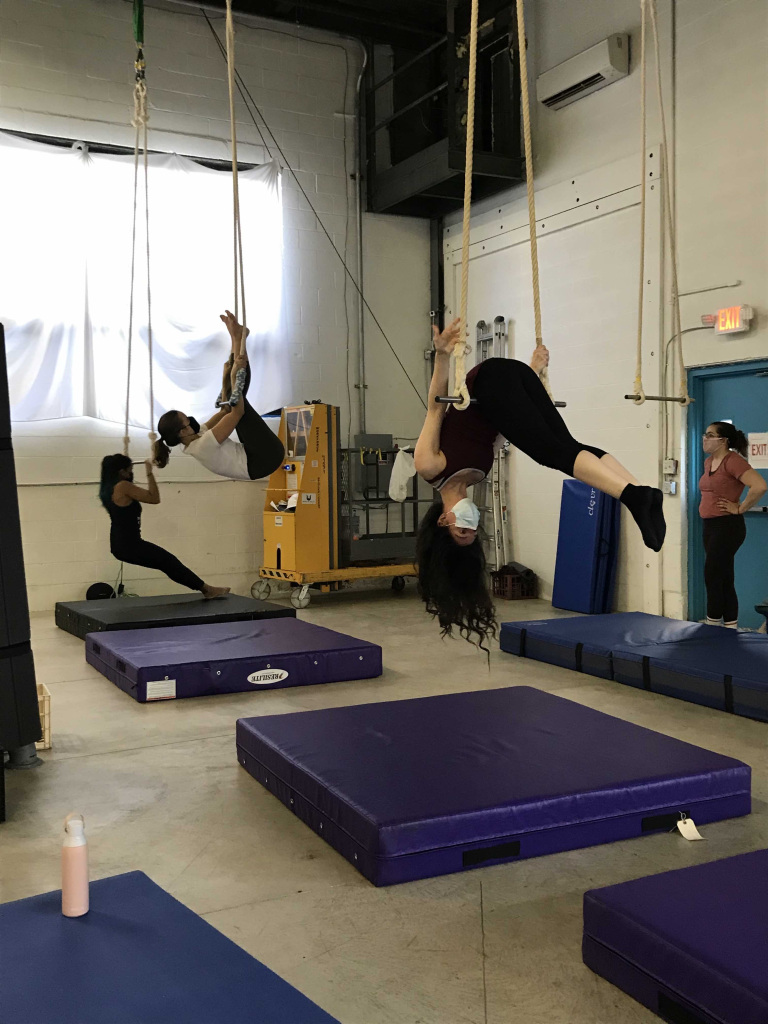
An Escape at The Bird’s Nest
Kristen Bloom hangs in the air, as she teaches a socially-distanced Trapeze Level One class at The Bird’s Nest, a studio specializing in circus arts in Buffalo. Around the room are large mats for safety, hula hoops and foam blocks. Bloom’s students are building on what they have learned in the previous weeks. Above them, there are aerial silks wrapped up as well as hoops ready to come down for other classes. Behind them, Karen Dennis leads a flexibility class.
“Today is all about laying foundations,” Bloom says to her students. “If it’s not happening today, it’s okay.”
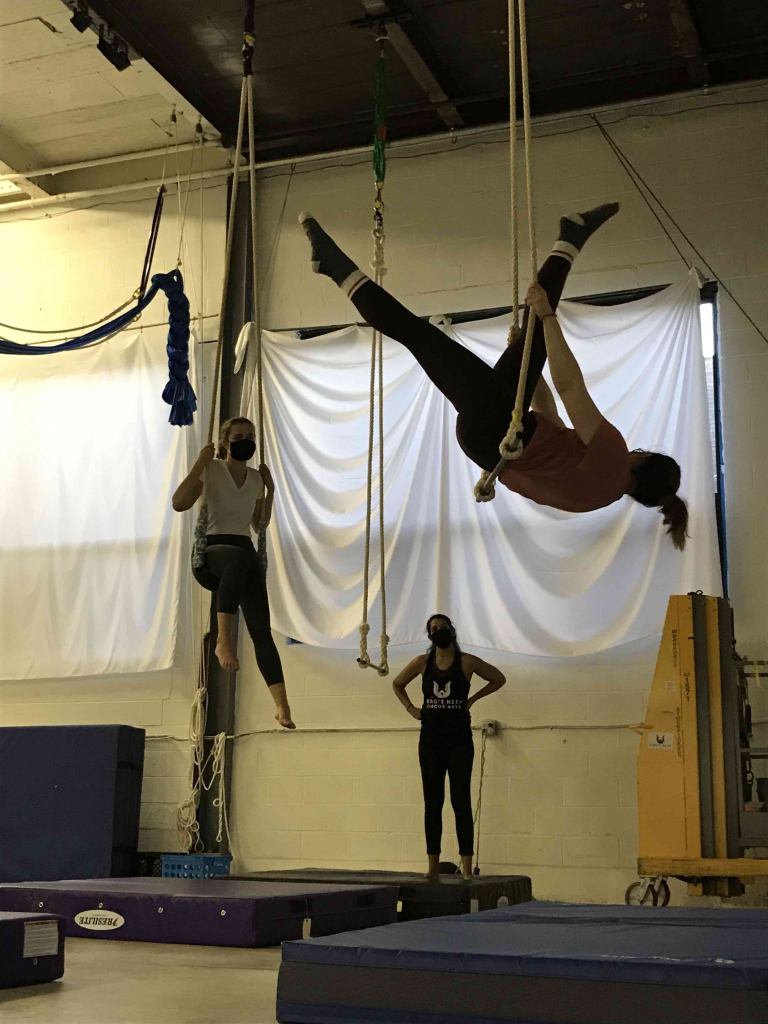
Operations at the studio, which opened in 2015, look different now as a result of COVID-19. Bloom said there is more cleaning and teachers at the studio have had to rethink the way they can teach without hands-on instruction. Bloom said the changes are worth it, given that she is back in the studio with her friends.
Dennis added that the studio is a great place to be right now in order to get human interaction and an escape. Providing an escape has been part of the circus’s appeal since its beginnings, according to Don Covington, president of the Circus Historical Society.
The First American Circus
At first glance, the original American circus may not appear to have too much in common with the studio, other than the circus arts themselves. The studio offers classes and workshops instead of acting as a travelling circus.
However, an escape from reality as well as an element of inclusivity and community is part of what made the American circus so successful in the first place. These same elements are at the core of what The Bird’s Nest instructors hope to give their community.
“Well, the circus offered a different approach to everyday life. It was something that gave them an escape from the mundane,” Covington said.
According to Covington, in the beginning of the 19th century, America’s westward expansion provided opportunities for travelling shows like the circus.
“Settlers were desperate for diversions and the circus provided reasonably priced, accessible escape from the day-to-day routine,” Covington said in an email. “The fact that circus performances did not rely on dialogue made them even more desirable.”
Circus Arts During COVID-19
Due to the outbreak of COVID-19, people are in need of a diversion, just like the settlers Covington talked about.
“Sometimes, you just got to get out of the house,” Ben Maddoff, who owns the studio, stated in an email. “Our particular practice is both athletic and artistic, and we need to work with the apparatus that speaks to us!”
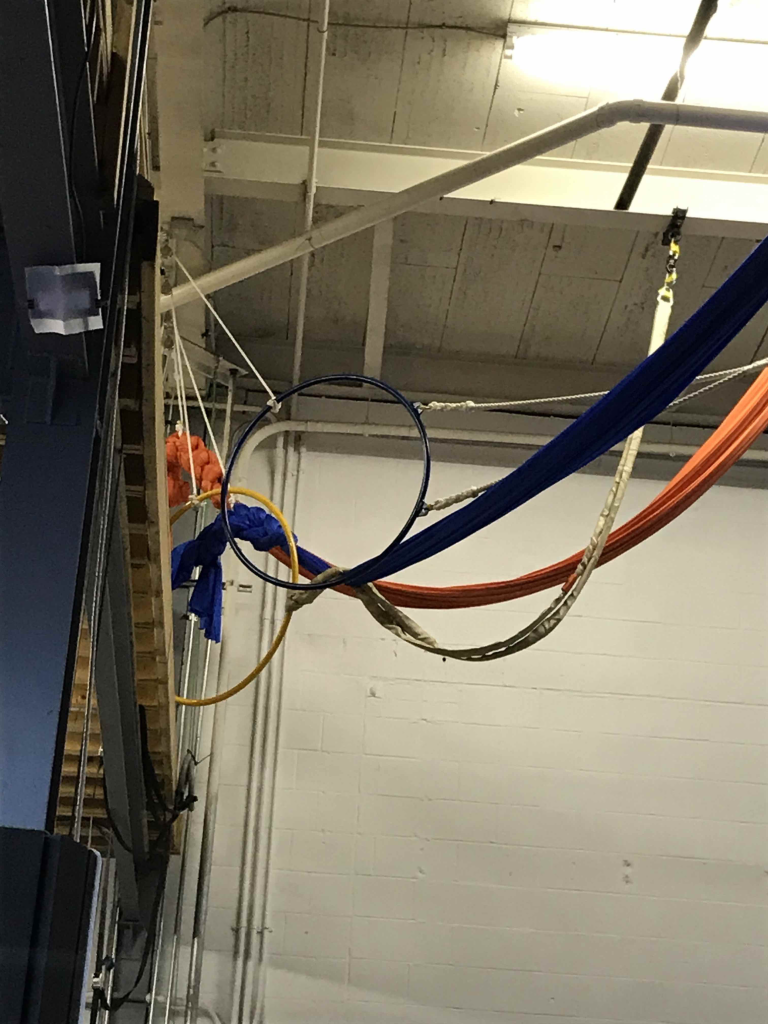
According to Maddoff, the studio staff has developed specialized cleaning procedures for each piece of equipment that is still in use. Many pieces of equipment have been taken out of rotation all together.
“It’s a challenge every day,” he said. “We’re glad for the chance to have what practice we’re able to. I miss the way the community was able to come together before, but we’re rebuilding one circus art at a time.”
Class schedule and size has also been impacted. According to Maddoff, many of the studio’s classes cannot resume until after the pandemic is over. The ones that are happening are limited to five students per session. In order to have any aerial arts classes practicing, additional support work has been required for cleaning and additional money was needed to purchase extra cleaning supplies and circus equipment, so no one would have to share.
“We have to be careful to teach skills that don’t require hands on spotting,” he said. “We’re focusing on strength building and basics more than usual while folks are getting their strength back.”
Home Away From Home
Dennis said the studio is an outlet for maintaining positive physical and mental health as it provides a workout as well as a community of supportive people.
“It doesn’t matter who you are, what your background is,” Dennis said. “There are people who have zero background … You can just come on in and be a complete beginner and every teacher is really accommodating.”
At its beginnings, the circus was for everyone to enjoy. Covington said that it wasn’t necessary to understand the language in order to enjoy the performance and the tickets were inexpensive, so it was not just meant for higher income people.
In an effort to be more inclusive, Bloom said that the studio is planning a scholarship program to make their classes more accessible.
“We really try to be as big of a family as we can be,” Bloom said. “Everyone’s welcome here, it’s always been our thing. If you want a home here, all you have to do is ask. That’s what we’ve pushed all along.”
https://www.youtube.com/watch?v=2ypiQvPd3ls&t=14s





